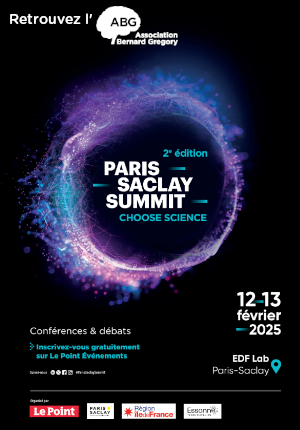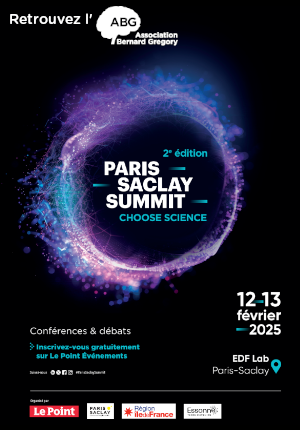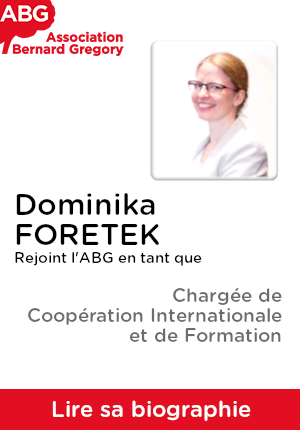Stage M2/Ingénieur: Vers une gestion automatisée du dosage de médicaments pour le contrôle hémodynamique et anesthésique
| ABG-127495 | Stage master 2 / Ingénieur | 5 mois | environ 600€ / mois |
| 10/12/2024 |

- Sciences de l’ingénieur
- Robotique
- Santé, médecine humaine, vétérinaire
Établissement recruteur
Site web :
IMS lab. belongs to Université de Bordeaux. The laboratory focuses on ten research themes including bioelectronics, cognitics, productics, signal and image, automatic, conception, reliability, nanoelectronics, waves, and organic. The laboratory emphasizes research where all the themes are interconnected.
The laboratory is at the forefront of technology, and its strong industrial partnerships enable IMS Bordeaux to be a major player in research in France.
Description
Contexte :
Le sujet s'inscrit dans le projet GALOPin (financé par l'Initiative d'Excellence de l'Université de Bordeaux) qui associe l'expertise des praticiens hospitaliers du CHU de Bordeaux en endocrinologie, anesthésie et hémodynamique, à celle des chercheurs (IMS, CNRS, U5218) en automatique. Les domaines scientifiques couverts par le projet de recherche GALOPin sont : la modélisation mathématique, les techniques d'identification expérimentale et la conception de lois de commande robustes MIMO (Multiple Input / Multiple Output). En réalité, la pratique clinique au cours d'une intervention chirurgicale implique un problème d'allocation de commande optimal pour délivrer plusieurs médicaments en fonction du patient et de l'intervention. Il s'agit d'une stratégie de contrôle en boucle fermée, une méthodologie mature dans l'ingénierie des systèmes complexes (aérospatiale, etc.), avec un grand potentiel pour induire des temps de récupération plus rapides et réduire le risque de complications post-opératoires. En particulier, le professeur OUATTARA a été le premier à souligner l'importance du contrôle peropératoire de la glycémie en chirurgie cardiaque [1], une préoccupation qui reste d'actualité [2].
Objectifs/méthodes :
L'objectif attendu de ce stage est de concevoir une boucle fermée entièrement automatisée pour contrôler le dosage optimal de plusieurs médicaments lors d'une anesthésie chirurgicale. Dans ce travail, la solution de contrôle robuste sera basée sur le formalisme H∞. Les résultats attendus sont i) la reproduction des résultats obtenus dans [3,4] pour le cas SISO (Single Input / Single Output) en utilisant des simulateurs in silico [5, 6], et ii) l'extension de la solution au cas MIMO. Une étude visant à intégrer les effets hyperglycémiques du stress et des médicaments pendant l'anesthésie [7] peut être envisagée pour fournir des perspectives significatives pour un projet de doctorat. Cette intégration pourrait être basée sur des modèles dynamiques glucose-insuline disponibles dans la littérature (simulateur UVA/Padova approuvé par la Food and Drug Administration (FDA) [8], modèle de Sorensen, etc.)
(In english)
The subject is part of the GALOPin project (funded by the "Initiative d'Excellence", Université de Bordeaux), which combines the expertise of hospital practitioners at Bordeaux University Hospital in endocrinology, anaesthesia and haemodynamic, with that of researchers (IMS, CNRS, U5218) in control engineering. The scientific areas covered by the GALOPin research project are: mathematical modelling, experimental identification techniques and the design of robust MIMO (Multiple Input / Multiple Output) control laws. In reality, clinical practice during surgery involves an optimal control allocation problem for delivering several drugs depending on the patient and the intervention. This is a closed-loop control strategy, a mature methodology in the engineering of complex systems (aerospace, etc.), with great potential for inducing faster recovery times and reducing the risk of post-operative complications. In particular, Prof. OUATTARA was the first to highlight the importance of intraoperative glycaemic control in cardiac surgery [1], a concern that remains relevant today [2].
Goal/methods:
The expected goal for this internship is to design a fully automated closed loop to control the optimal dosage of several drugs during anaesthesia for surgery. In this work, the robust control solution will be based on H∞ formalism. Expected outcomes are to i) reproduce the results obtained in [3,4] for SISO (Single Input / Single Output) case by using in silico simulators [5, 6], and ii) extend solution to MIMO case. An investigation to integrate the hyperglycaemic effects of stress and drugs during an anaesthesia [7] can be envisaged to provide significant perspectives for a PhD project. This integration could be based on glucose-insulin dynamic models available in the literature (UVA/Padova simulator approved by the Food and Drug Administration (FDA) [8], Sorensen model, etc.)
[1] Ouattara et al., Poor Intraoperative Blood Glucose Control Is Associated with…, Anesthesiology (2005)
[2] Gerbaud et al., Glycaemic Variability and Hyperglycaemia as Prognostic Markers of Major… J. Clin. Med. (2022)
[3] Caiado et al., Robust control of depth of anesthesia based on H∞ design, Arch. Of Cont. Sc., (2013)
[4] Hosseinzadeh, Robust control applications in biomedical engineering: control of depth of hypnosis, Aca. Press, (2020)
[5] Ionescu et al.: Open Source Patient Simulator for Design and Evaluation of… IEEE Access, 9 (2021)
[6] Aubouin-Pairault et al.: PAS: a Python Anesthesia Simulator for drug control J. of Open Source Soft., (2023)
[7] Hispzer et al., A mathematical model of glucose metabolism in hospitalized with diabetes…, Thesis, (2008).
[8] Dalla Man et al, The UVA/Padova type 1 diabetes simulator: new features, JDST, 8(1): 26-34 (2014)
Profil
Profil recherché : 1) Commande robuste multivariable, 2) Modélisation Mathématique, 3) Identification
Compétences requises : Le candidat devra avoir de bonnes connaissances et compétences en conception de commandes robustes (formalisme H∞). Une pratique confirmée de la programmation sous Matlab sera nécessaire.
Durée du stage : 5 mois, éventuellement à partir de février-mars 2025.
(in English)
Profile: 1) Robust control for MIMO systems, 2) Mathematical modelling, 3) Experimental Identification
Requested skills: The candidate should have developed good knowledge and skills in robust control design (H∞ formalism). A confirmed practice of Matlab programming will be necessary.
Duration: 5 months, possibly starting with February-March 2025.
Prise de fonction
Vous avez déjà un compte ?
Nouvel utilisateur ?
Vous souhaitez recevoir nos infolettres ?
Découvrez nos adhérents
 Nokia Bell Labs France
Nokia Bell Labs France  Aérocentre, Pôle d'excellence régional
Aérocentre, Pôle d'excellence régional  Laboratoire National de Métrologie et d'Essais - LNE
Laboratoire National de Métrologie et d'Essais - LNE  ADEME
ADEME  ANRT
ANRT  SUEZ
SUEZ  Institut de Radioprotection et de Sureté Nucléaire - IRSN - Siège
Institut de Radioprotection et de Sureté Nucléaire - IRSN - Siège  MabDesign
MabDesign  TotalEnergies
TotalEnergies  Ifremer
Ifremer  PhDOOC
PhDOOC  CASDEN
CASDEN  Généthon
Généthon  Tecknowmetrix
Tecknowmetrix  CESI
CESI  MabDesign
MabDesign  ONERA - The French Aerospace Lab
ONERA - The French Aerospace Lab  Groupe AFNOR - Association française de normalisation
Groupe AFNOR - Association française de normalisation  Institut Sup'biotech de Paris
Institut Sup'biotech de Paris







